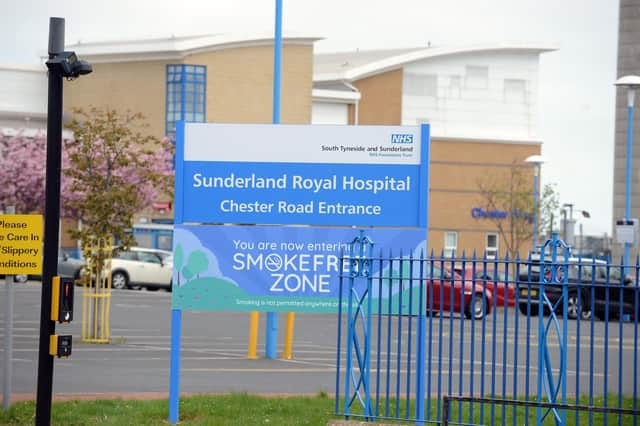Woman, 31, died of 'natural causes' as coroner concludes fall at Sunderland Royal Hospital contributed to her death


Nicola Louise Ellison, who had complex underlying health problems, died at Sunderland Royal Hospital just over a month after she was first admitted.
The 31-year-old, of Peterlee, was initially admitted to hospital on February 11, 2020, after a fall – and an inquest into her death heard she had a medical condition which meant her blood pressure could drop suddenly when she stood up.
Advertisement
Hide AdAdvertisement
Hide AdAt the final inquest hearing, which took place at Sunderland Coroner’s Court, Dr Joshi – a consultant endocrinologist – outlined Nicola’s multiple medical problems including diabetes.
Dr Joshi said: “All of those medical problems would compromise her ability to fight the infection and additionally her overall diabetes control was so poor that it would make her more likely to get more infections as well. She would take a longer time to fight those infections.”
Assistant senior coroner Karin Welsh heard evidence that medical staff had been able to stabilise Nicola’s condition after she was first admitted but there were underlying problems which needed to be improved – with doctors focusing on a urinary tract infection, nutrition and mobility.
During her stay in hospital on February 23, Nicola used her wheelchair to get to the toilet independently but needed assistance to get back to her bed.
Advertisement
Hide AdAdvertisement
Hide AdThe 31-year-old told staff she had rang the call bell and had waited for 20 minutes before attempting to move herself where she fell and broke her ankle.
Matron Susan Lindsay, who gave evidence at the hearing, said: “(Nicola) said she had lost her balance. She said she had used the call bell and felt as though it was 20 minutes before anyone had come to assist her and in that time she attempted to get back into her wheelchair and she had fallen.”
An investigation could not determine how long the buzzer had rung for but medical staff didn’t believe it had rung for an ‘extended length of time’.
"I apologise if it was 20 minutes because that would not be the standard we would expect a patient to wait,” added the matron. “However, sometimes when you pushed a buzzer and you’re desperate to get back to your bed and waiting for assistance it can feel a lot longer than what possibly a patient is waiting.”
Advertisement
Hide AdAdvertisement
Hide AdA risk assessment was carried out on Nicola’s admission, which was updated weekly, and provisions such as a call bell were put in place. Staff had repeatedly advised Nicola to call for assistance whenever she needed to move, the inquest heard.
Her fractured ankle was treated and placed in a plaster cast.
The inquest heard evidence from Mr Krishnan, a consultant orthopaedic surgeon, who said whilst the fracture was not directly causative of death, for example by way of a fat embolism syndrome, it would have impacted on Nicola's already compromised physiological reserves.
In the early hours of March 14, Nicola’s heart stopped and although medical staff were able to revive her she suffered another cardiac arrest hours later and sadly died.
Advertisement
Hide AdAdvertisement
Hide AdConcluding the inquest, Ms Welsh recorded pulmonary edema as the primary cause of death with diabetes ‘also appearing in part two – in other words it has been contributory but not causative of her death’.
She added: "As indicated the effects of the fall still contributed. A fall risk assessment had been done. Nicola was advised to use the call bell button but from time to time independently mobilised around the ward using her wheelchair rather than bothering or waiting for staff. Bearing that in mind I cannot make a finding that the fall could have been prevented."
As no short-form conclusions were appropriate, Ms Welsh recorded that Nicola died of ‘natural causes contributed to by the effects of a fall’.
Dr Shaz Wahid, Medical Director at South Tyneside and Sunderland NHS Foundation Trust, said: “Our thoughts and condolences go out to Nicola's family at this very difficult time.
Advertisement
Hide AdAdvertisement
Hide Ad“Keeping our patients safe and well whilst in our care is an absolute priority. All patients admitted to our wards have a thorough risk assessment to identify if they are at risk of a fall so we can take all appropriate precautions and offer advice to protect them during their stay with us.
"We are reassured that in this case, the Coroner found that the care and measures put in place were appropriate and safe.”
